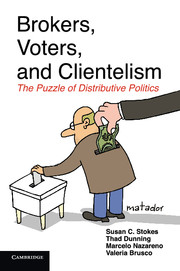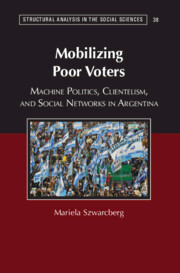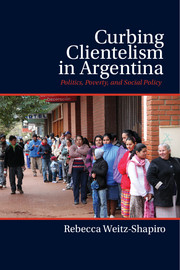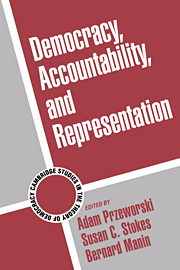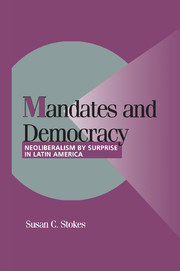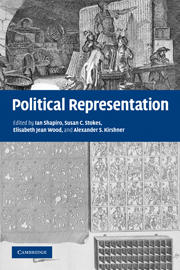Brokers, Voters, and Clientelism
Brokers, Voters, and Clientelism addresses major questions in distributive politics. Why is it acceptable for parties to try to win elections by promising to make certain groups of people better off, but unacceptable - and illegal - to pay people for their votes? Why do parties often lavish benefits on loyal voters, whose support they can count on anyway, rather than on responsive swing voters? Why is vote buying and machine politics common in today's developing democracies but a thing of the past in most of today's advanced democracies? This book develops a theory of broker-mediated distribution to answer these questions, testing the theory with research from four developing democracies, and reviews a rich secondary literature on countries in all world regions. The authors deploy normative theory to evaluate whether clientelism, pork-barrel politics, and other non-programmatic distributive strategies can be justified on the grounds that they promote efficiency, redistribution, or voter participation.
- Demonstrates that leading theories of distributive politics are fundamentally unable to explain how vote buying, pork-barrel politics, and machine politics operate in reality, and develop an original theory that explains these things
- Uses original and imaginative data and cutting-edge empirical techniques to test theory
- A broad study that reviews an enormous secondary literature and delves deeply into four contemporary developing democracies (Argentina, Mexico, Venezuela, and India)
Awards
Winner, 2014 Luebbert Best Book Award, Comparative Politics Section, American Political Science Association
Reviews & endorsements
'This book advances a single broad theoretical point: vote brokers are central to any system of vote buying in mass elections. While many previous scholars have considered the role of vote brokers from one angle or another, what sets this book apart is that it provides a unified theoretical model of vote brokers. It is grounded effectively in the modern economic theory of agency, and the authors run it through a series of tests using both original primary and secondary sources. Brokers, Voters, and Clientelism will be a landmark for the next generation of studies.' Gary W. Cox, Stanford University
'Brokers deserves every bit of attention it will garner … Brokers, Voters, and Clientelism is a model of theoretical precision, conceptual clarity, and impeccable logical reasoning, and its measured inferences, which are supported by exhaustive, careful empirical work, are placed within a proud tradition pioneered by V. O. Key, David Mayhew, Edward Banfield and other intellectual giants who young scholars often do not take the time to read.' Frances Hagopian, Perspectives on Politics
Product details
November 2013Hardback
9781107042209
344 pages
235 × 157 × 23 mm
0.6kg
50 b/w illus. 16 tables
Available
Table of Contents
- Part I. Modalities of Distributive Politics:
- 1. Between clients and citizens: puzzles and concepts in the study of distributive politics
- Part II. The Micro-Logic of Clientelism:
- 2. Gaps between theory and fact
- 3. A theory of broker-mediated distribution
- 4. Testing the theory of broker-mediated distribution
- 5. A disjunction between the strategies of leaders and brokers?
- 6. Clientelism and poverty
- Part III. The Macro-Logic of Vote-Buying: What Explains the Rise and Decline of Political Machines?:
- 7. Party leaders against the machine
- 8. What killed vote buying in Britain and the United States?
- Part IV. Clientelism and Democratic Theory:
- 9. What's wrong with buying votes?

